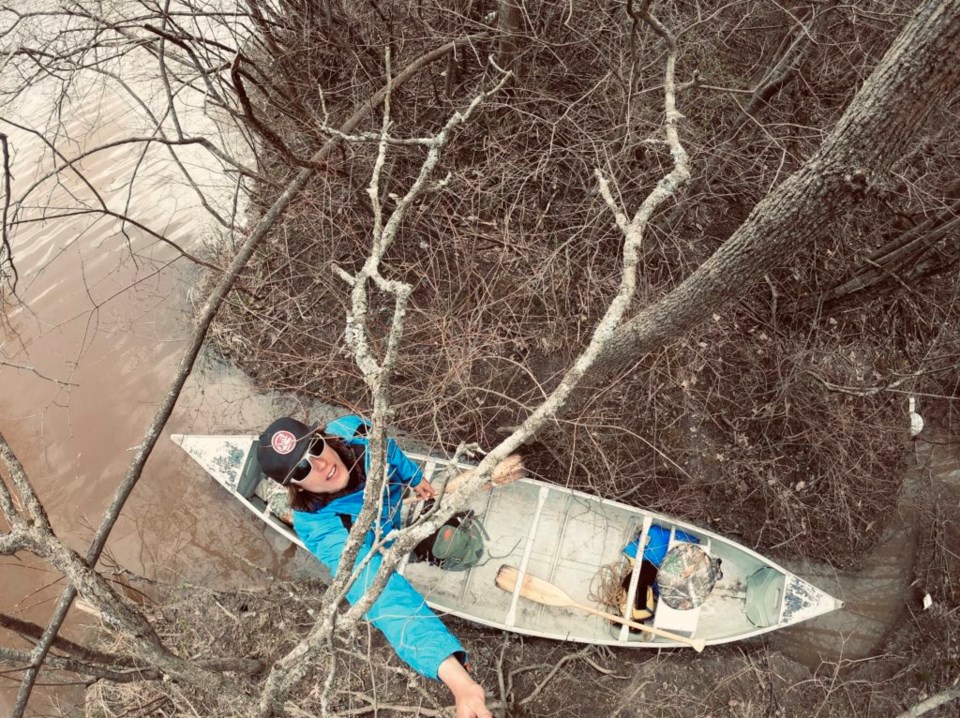
We must remain vigilant to ensure that nothing major happens to Niagara’s important ecosystems while we are consumed with a new reality of living. The longer the recovery takes, the trickier it will be to engage stakeholders, host public meetings, and effectively communicate on an open playing field.
Yes, it’s wonderful that we “have an app for that,” for sharing information and talking, but nothing beats the candid and professional communication of being face to face and in groups they represent. That’s our species.
Not only have we lost that type of communication, but we’ve also lost the ability to regulate malicious happenings, and that applies to our natural landscapes, and how they are going to be treated in times to come.
Once eyes and authorities are limited in their staffing or oversight, it may allow for unsupervised occurrences to take place.
I think about the two rounds of damage to provincially significant wetlands in Niagara Falls at Thundering Waters Forest. I think about some of the “cut first, ask later” clearings we’ve experienced in NOTL over the past few years. It is going to be terrifyingly hard to regulate what kinds of decisions are being made about these lands. I fear the public is going to be a quieter, less organized and less influential voice when going through important processes.
I sincerely hope the appropriate guidelines are adhered to as we all quietly hunker down, and no land owners or dream developers have their way with sensitive or protected lands.
I wonder if various nations and decision-makers will use COVID-19 as an economic excuse to ruthlessly open up the world’s natural resources again, in a wave we haven’t seen before. It might be seen as a calculated move to re-employ plenty of eager hands while stimulating the workforce.
Humans are so accomplished, but also so short-sighted! We are way too excited for growth and prosperity in a totally perverse way. How did we arrive here in this awkward COVID-19 pickle?
The western world was prepared to drive fancy cars and live in humongous homes, but not for a virus. We were prepared for the next best thing on Netflix and playoff sports, but our hospitals weren’t prepared for the surge of patients or dwindling medical supplies.
So what if we emerge out of COVID-19, opening up mines, forestry projects, and oilfields like we’ve never done before? And by “we,” I’m referring to the world. Will that be our next naive approach at how we manage this world? Perhaps our society would celebrate the new jobs, the economic upswing, and the roaring return, but at what shortsighted expense of our natural heritage and its ecosystem services?
My fear is that we are just setting ourselves up for the next big thing we’re inadequately prepared for: climate change.
COVID-19 isn’t going anywhere anytime soon, so let’s take its big picture lessons. It is cleaning the rust out of our tubes, showing us where the leaks are, and silently but violently causing us to reconsider how we rebuild. Ultimately, we must reroute to remain, and sometimes a teacher is required.
I had a teacher once in grade school who took my unruly, class-clown antics and shut them down before they ran amok later in life. Being boisterous and reckless in grade school paradise was actually starting to hurt me. The teacher, who came into my life unexpectedly, redirected my energy into sports and academia. He showed me where the cracks and leaks were, and how to rebuild for a more positive and secure future. Mr. C, if you’re reading this, thanks for giving me lots to think about.
Day by day, we continue to watch our natural world and natural state of mind change. It is important to protect what is especially dear and near. Well, at least as near as we can.